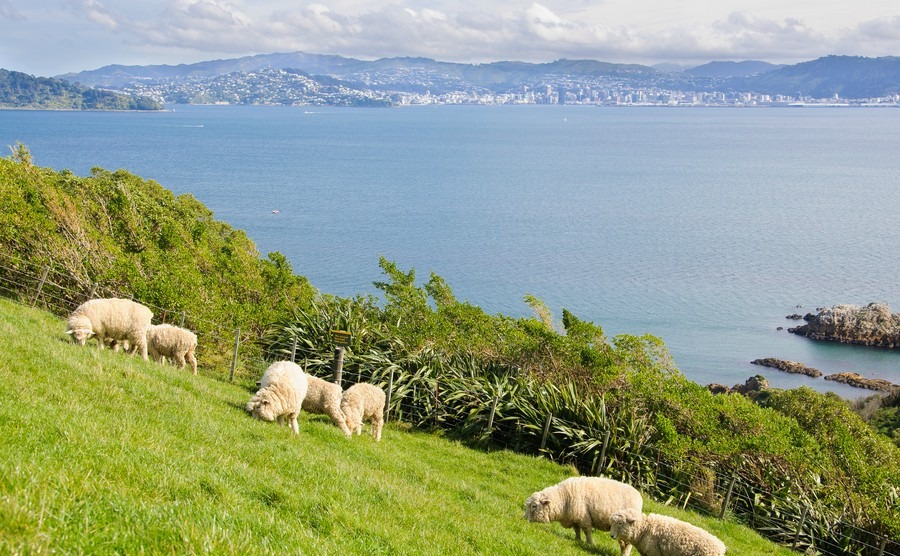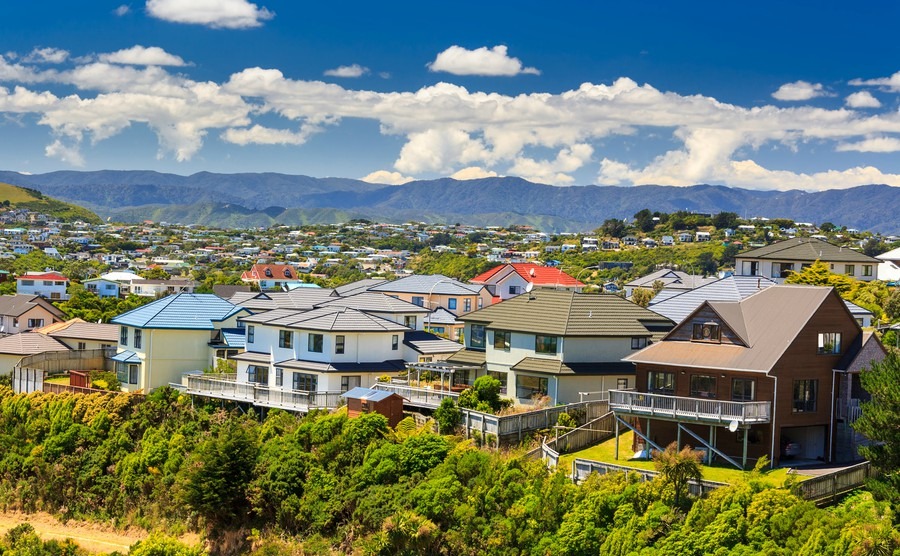Being so isolated from the rest of the world comes with its perks. One being that New Zealand wasn’t as badly struck by the global financial crisis as other nations. Over the course of last year, employment in New Zealand snuck up by 1.2%.
Agriculture is the nation’s largest industry.
The majority of this growth was seen in the usual suspects. Auckland represented almost half of the growth (45.6%), followed by Waikato (21%) and Bay of Plenty (13%). The overall unemployment rate for the country is 4.6% – in the UK, the unemployment rate is slightly lower at 4.2%. If you’re planning a move within the next couple of years, you’ll be pleased to hear that the government expects things to keep on improving. They have forecasted an average growth rate of 2.9% each year for the next five years. Today, we’re taking a look at the types of jobs available and where you’re most likely to find them…
New Zealand’s major industries
Agriculture and forestry
Just the thought of New Zealand summons up dreamy vistas of rolling farmland, dotted with the lambs – so it’s hardly a surprise that agriculture is the nation’s largest industry. Close to 50% of the country’s entire export income is made via meat, dairy and wool. In case you were wondering, the country is home to 30 million sheep and nearly 5 million beef cattle! The majority of the farming jobs, particularly dairy and beef, are concentrated on the North Island. Sheep themselves are big business – New Zealand is the second largest producer of sheep after Australia, and they don’t just farm them for meat, they breed them to supply other countries, mainly the UK and Iran. Their wool is also incredibly lucrative – New Zealand is the world’s largest supplier of sheep’s wool for carpets, clothing and upholstery.

Agriculture is big business in New Zealand.
New Zealand’s climate also makes it wonderful for growing crops, and grapes…as we all know! Vegetables, wheat, barley, tobacco, herbs and then there’s the growing citrus industry – New Zealand produces kiwi fruits, passion fruit and more. In the North Island you’ll find lots of orchards, whereas on the South Island you can expect grapes, hops and tobacco – mostly centred around the sunny town of Nelson. More than 27% of the country is covered by forest, which makes forestry a huge industry as well. In fact, when you combine agriculture and forestry together, it employs around 7% of New Zealand’s entire workforce. There is currently a skills shortage in forestry, particularly in managerial roles. The dairy sector is especially short on workers, as it’s estimated they need at least 2,000 additional workers every year to account for the growth in the industry.
Property
In the 2015-2016 financial year, New Zealand’s property industry directly contributed NZ$29.8 billion to the country’s economy. The industry now employs almost over 160,000 people, overtaking the manufacturing industry in terms of turnover and employment. For the purposes of this article, we’re lumping construction under this header. While opportunities were rife in Christchurch for construction workers over the last couple of years, things have slowed a little more recently as projects are completed. Having said that, there are plenty of opportunities for those in construction, property operation, real estate services, architects and science, and in technical roles like engineering.

The country’s property industry is a big emploter.
The government has predicted that around a quarter of total growth in all employment in New Zealand over the next three years is to occur in construction and related activities. Construction jobs on the skills shortage list as of the start of 2018 include; surveyors, survey technicians, quantity surveyors, project managers, project builders, building inspectors and building surveyors. Your best locations to find construction work are the main urban centres where populations are growing at the fastest rates – Auckland, Wellington, Christchurch, Hamilton, Bay of Plenty and Napier-Hastings.
Manufacturing
New Zealand manufactures a range of goods – steel, rubber, plastics, building supplies, furniture, vehicle assembly and aircraft manufacture, to name just a few. The latter used to be the biggest industry in New Zealand, but it’s since been overtaken by property and agriculture. You can check whether your specific manufacturing job is on the skills shortage list by heading here.
Tourism and hospitality
New Zealand’s landscape, friendly people, world-class cities, climate, hair-raising adventure and wine, make it a firm favourite with tourists. Around 3.7 million tourists head here each year, mostly from Australia, China, the UK, Japan, Canada, Taiwan and across Europe, which makes tourism and hospitality a serious businesses. It’s predicted that tourist spending will grow to 15.3 billion by 2023 and the number of visitors is expected to increase by 39% to 4.9 million per year.
New Zealand’s landscape, friendly people, world-class cities, climate, hair-raising adventure and wine, make it a firm favourite with tourists.
The majority of tourism and hospitality jobs are found in the top tourist destinations, including Auckland, Queenstown, Rotorua, Wellington, Christchurch and Bay of Plenty. If you’d like to work in this field, it’s important to consider which aspect of the industry appeals most. For example, are you keen to work in snow sports during winter? In which case, you should set your sights on the South Island, and Queenstown in particular. If you want to work in one of New Zealand’s best restaurants, your best bet is to head to a larger city like Auckland or Wellington. If you insist on the South Island, many of the best restaurants are found at the wineries, so do keep that in mind when choosing a location. Some tourism and hospitality work is seasonal, so always begin your job search to coincide with the correct times of the year.
Healthcare
According to the New Zealand Now Government website, 380 extra healthcare specialists will be required every year in order to hit their target of meeting the OECD average by 2021. They have also stated that they require an additional 25,000 nurses by 2030. This sort of demand means there are plenty of opportunities in healthcare, and you can register your interest here to get the ball rolling.
Getting a good deal is often a question of good planning and research. Download our guide: How to Negotiate Abroad to give yourself a head start.
If you work in health technology you won’t be disappointed either! Medical innovation in New Zealand is some of the world’s most cutting edge, and exports of medical technology were set to earn $7 million in 2015. The sector invests $66 million into health research and development every year – which points to a real commitment to growing the industry. The major companies to look to for employment include Orion Health, Atlantis Healthcare and Fisher and Paykel.
Is your job on the skills shortage list?
As mentioned, there are multiple skills in short supply in New Zealand. In addition to the major industries detailed above, you can expect to find roles in education, science, oil and gas, business and finance and I.T. This is wonderful news! It means that if you have the required knowledge, expertise and experience, finding work and securing a residence visa is likely to be relatively easy. The New Zealand Government is well aware that they need to recruit people from overseas to help them accomodate growth, so they (fortunately) make the process nice and straightforward.
Where should I start my job search?
To get a grasp of the market and to see what’s available in different locations, you should check out Seek and Trade Me, but do be aware that not all employers on here will be open to hiring people hoping to move to New Zealand. In many instances, you might need to prove you have the right to work before they will offer you the job. If you want to find a job that will help you to make the move through sponsorship, check out, Workhere, New Kiwis and Working In, which are all designed specifically to connect offshore workers with employers in New Zealand.







